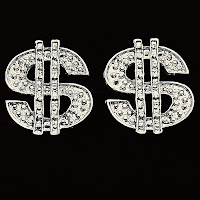 Newsweek has put together a thinkpiece on this very question, and appropriately, it's relatively inconclusive. I think happiness isn't something definable in general economic terms, but hey, it's fun to try.
Newsweek has put together a thinkpiece on this very question, and appropriately, it's relatively inconclusive. I think happiness isn't something definable in general economic terms, but hey, it's fun to try.
Here's my favorite counterargument to the notion that more money means more happiness:
"According to standard economics, the most important commodity you can buy with additional wealth is choice. If you have $20 in your pocket, you can decide between steak and peanut butter for dinner, but if you have only $1 you'd better hope you already have a jar of jelly at home. Additional wealth also lets you satisfy additional needs and wants, and the more of those you satisfy the happier you are supposed to be.
The trouble is, choice is not all it's cracked up to be. Studies show that people like selecting from among maybe half a dozen kinds of pasta at the grocery store but find 27 choices overwhelming, leaving them chronically on edge that they could have chosen a better one than they did."
Being overwhelmed by choice can be disconcerting, and on top of that, when you have an unlimited amount of money to spend, there are unlimited number of things you need to buy. That, and you find a lot of misers out there, intent on making money only to have it, and hoarding it drives them insane (or just working that much). Either way, the article is an interesting topic to ponder.
Friday, October 19, 2007
Does money buy happiness?
Subscribe to:
Post Comments (Atom)


1 comments:
It seems to me the fact that money doesn't appear to buy happiness (after a certain point) seems perfectly in line with standard economic theory. After reaching a certain comfort level people tend to want to work less. They chose to earn less income, but enjoy more leisure time (leisure time being whatever you chose to do when you're not working). Once your "basic needs" are met, additional leisure time becomes much more attractive relative to working additional hours. It's basic diminshing marginal returns at work here.
-Matt
Post a Comment